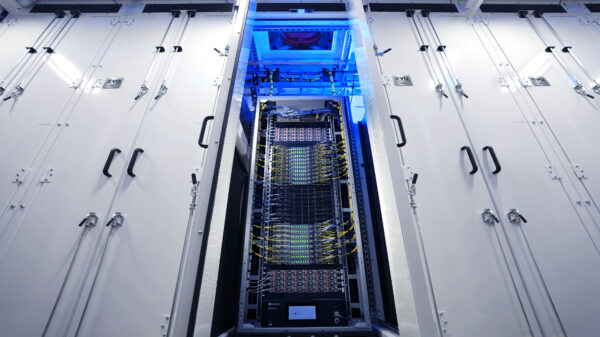Filecoin Foundation announced its mission to deploy an Interplanetary File System (IPFS) in space today, in conjunction with Lockheed Martin (NYSE: LMT) and its LM 400 Technology Demonstrator spacecraft.
The foundation announced its partnership with Lockheed Martin in May of last year. Subsequently, it aims to deploy the IPFS into space to improve data transfer speed across distances. The idea is to bring the benefits of decentralized storage to space, and explore use cases of how the IPFS can enable interplanetary communication and data transfer.
“From the beginning, IPFS was envisioned as a technology that can enable networking across ‘interplanetary’ distances,” said Marta Belcher, president and chair of Filecoin Foundation.
“Today’s centralized internet model doesn’t work in space. Let’s say you’re on the moon and you’re retrieving data from Earth; each time you retrieve that data, there will be a multi-second delay.”
The new system ensuring data won’t need to go back and forth to earth with every click. This is because the IPFS identifies the data by what it is rather than where and assigns each piece of content a unique content identification, according to Belcher.
The system draws content from whatever server is closest instead of a particular server.
Read more: Cosmos Group Holdings brings digital art to the blockchain
Read more: Lockheed Martin and NVIDIA build digital earth for environment monitoring
Filecoin and IPFS demonstrate large data transfers from space
The Filecoin Foundation works to push governance of the Filecoin network with research money and development for decentralized web technologies. The Filecoin network itself is a decentralized blockchain based network with its own eponymous cryptocurrency.
The mission is the first of its kind, used to evaluate in-space data transfers and use cases for decentralized storage.
Lockheed Martin will host the program on its LM 400 Technology Demonstrator. The demonstrator is a software-defined satellite about the size of a refrigerator.
Additionally, once the spacecraft is in orbit, it will use its SmartSat software tech to upload and perform the demonstration.
“The LM 400 Tech Demonstrator mission will showcase how IPFS can make larger quantities of data from space available to multiple ground-based applications in simpler ways,” said Joe Landon, vice president and general manager of lunar infrastructure services at Lockheed Martin.
“It will serve as the foundational infrastructure to enable more efficient interplanetary communication for our collective, long-term presence in Earth orbit, at the moon, and beyond.”
Applications using the IPFS will use the data from the network without actually knowing its physical location on the ground. IPFS is a decentralized protocol for storage and sharing data using content-addressing for identification of files. It’s a foundational tech for the Filecoin network, which is a cryptocurrency-powered decentralized storage network.
The IPFS software layer for space has a wide variety of use cases, architectures and topologies, including space-to-space communication. The software is open-source and developed in a transparent manner.
Follow Joseph Morton on Twitter
joseph@mugglehead.com













